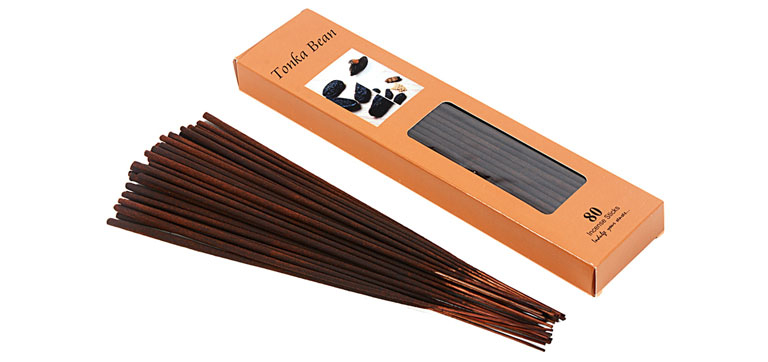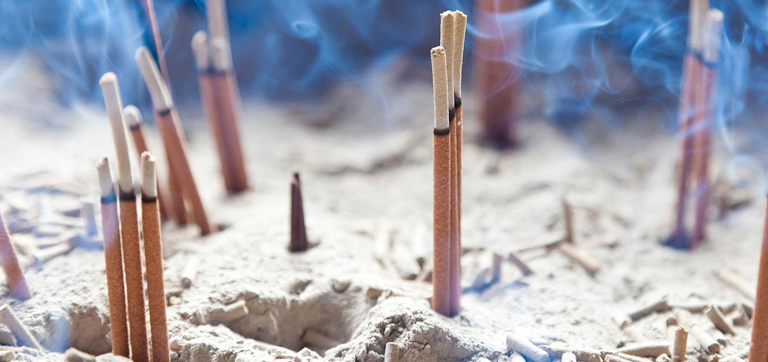

In the land of culture, colors and fragrance; incense stick (also known as Agarbatthi) has been a tradition since the time of Vedas. The Atharva Veda and Rig Veda are the oldest sources in the world where there has been a mention of incense. This highlights the deep rooted relation between incense and India. Although incense making was attributed to only the priests, but the enchantment of incense was experienced by almost everyone. The pleasing aroma of incense relaxed and made ecstatic almost everyone. The healing touch of the incense aroma has helped alleviate sufferings of both mental and physical state of many. Ayurveda mentions the significance of incense in treatment of ailments and maintenance of good health. Religions of the Vedic time like Hinduism incorporated incense in its tradition. Buddhism too soon adopted incense as an integral part of its religious practices and ceremonies. As these religions spread all over the world; the aroma and the practice of using incense also disseminated.
Almost all Hindu rituals begin with lighting up incense. Apart from making the ambience purer and fitter for religious ceremonies and meditation, the incense also fills the air with pleasant fragrance and acts as an organic disinfectant dispelling away insects that might prove a distraction while offering religious devotion to the almighty or during meditation. Incense has an unparalleled soothing and relaxation effect on the mind. A relaxed mind in turn is more receptive and suitable to perform meditation. The practice of burning incense also has a symbolic significance in Hindu Philosophy. The Hindu Philosophy preaches us all sacrifice for the betterment of the society. On the lines of this philosophy, incense burns itself completely or in other words sacrifices itself entirely for the betterment of the atmosphere and to please the senses of the devotees to experience enlightenment by meeting with the Supreme Being. Thus symbolically, the incense sacrifices itself for a greater cause.
The Indian Incense on the lines of principles of Ayurveda is primarily made up of five major classes of ingredients. These are:
- Ether (fruits): for example star anise
- Water (Stems and Branches): for example cedar wood, sandalwood and frankincense
- Earth (Roots): for example ginger, turmeric, Costus root and Indian Spikenard
- Fire (flowers): for example clove and jasmine
- Air (leaves) : for example patchouli
The incense in India is not just another product but a culture with roots soiled in Vedas and Hindu Philosophy. We celebrate our culture by sharing the purity and aroma of incense with people around the world. Celebrate this culture with us by having a look at our diverse products in incense.



